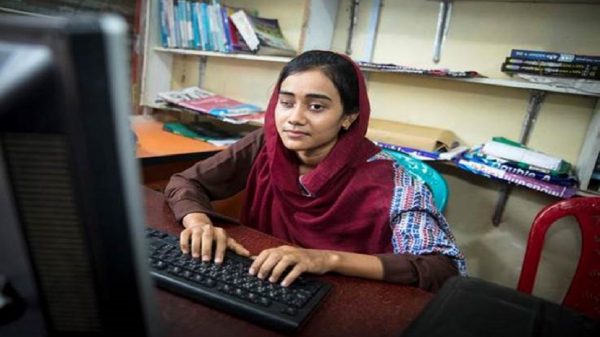Nearly 240 million children worldwide living with disabilities: UNICEF

Shawdesh Desk:
The number of children with disabilities globally is estimated at almost 240 million, according to a new UNICEF report.
Children with disabilities are disadvantaged compared to children without disabilities on most measures of child well-being, the report says.
“This new research confirms what we already knew: Children with disabilities face multiple and often compounding challenges in realizing their rights,” said UNICEF Executive Director Henrietta Fore.
“From access to education, to being read to at home; children with disabilities are less likely to be included or heard on almost every measure. All too often, children with disabilities are simply being left behind,” she stated.
The report includes internationally comparable data from 42 countries and covers more than 60 indicators of child well-being – from nutrition and health, to access to water and sanitation, protection from violence and exploitation, and education.
These indicators are disaggregated by functional difficulty type and severity, child’s sex, economic status, and country.
The report makes clear the barriers children with disabilities face to participating fully in their societies and how this often translates to negative health and social outcomes.
Compared with children without disabilities, children with disabilities are 42 percent less likely to have foundational reading and numeracy skills; 49 percent more likely to have never attended school; 41 percent more likely to feel discriminated against; 32 percent more likely to experience severe corporal punishment, 51 per cent more likely to feel unhappy, 53 per cent more likely to have symptoms of acute respiratory infection.
As for access to education, the report finds children with difficulty communicating and caring for themselves are the most likely to be out of school, regardless of education level.
However, the disability experience varies greatly, reads the UNICEF report.
The analysis demonstrates that there is a spectrum of risks and outcomes depending on the type of disability, where the child lives, and what services they can access. This highlights the importance of designing targeted solutions to address inequities.
Access to education is one of several subjects examined in the report. Despite widespread agreement on the importance of education, children with disabilities are still falling behind.
The report finds children with difficulty communicating and caring for themselves are the most likely to be out of school, regardless of education level. Out-of-school rates are higher among children with multiple disabilities and disparities become even more significant when the severity of the disability is taken into account.
The United Nations Children’s Fund has called on governments to consider children with disabilities while making policies and provide children with disabilities with equal opportunities.
“Governments must work together with persons with disabilities to eliminate the barriers that keep them out of society, and ensure birth registration; inclusive health, nutrition, and water services; and equitable education and assistive technologies. They must also work to eradicate stigma and discrimination against children with disabilities.”
The analysis seeks to increase the inclusion of the 1 in 10 children and young people with disabilities worldwide by ensuring they are counted, consulted and considered in decision-making.
The new global estimate for the number of children with disabilities is higher than previous estimates, and is based on a more meaningful and inclusive understanding of disabilities, which considers difficulties across several domains of functioning, as well as symptoms of anxiety and depression.
“Exclusion is often the consequence of invisibility,” said Fore. “We have not had reliable data on the number of children with disabilities for the longest time. When we fail to count, consider and consult with these children, we are failing to help them reach their vast potential.”
























Leave a Reply